AITA for refusing to forgive my Dad for breaking our deal?
From the tender age of eight, music became his sanctuary, a world where the young boy’s fingers danced across piano keys, weaving melodies that echoed through school halls and retirement homes alike. His passion and dedication earned him the nickname "the piano guy," a testament to how deeply he connected with the instrument that shaped his childhood and defined his ident*ty.
Yet beneath the notes and applause, a quiet struggle brewed. At fifteen, the boy faced the crossroads of expectation and desire, negotiating freedom with his parents through a pact that tethered his dreams to a distant reward. His privileged life, layered with opportunity, concealed the emotional toll of balancing ambition, obligation, and the yearning to find his own path beyond the music.

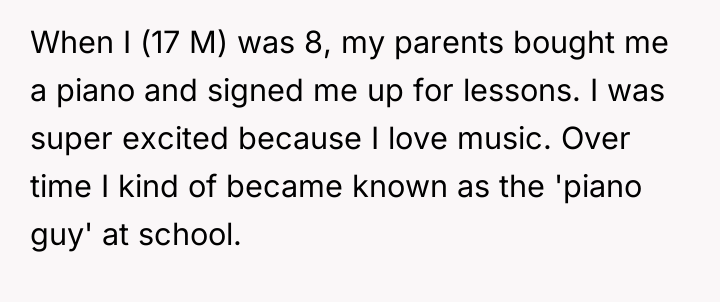
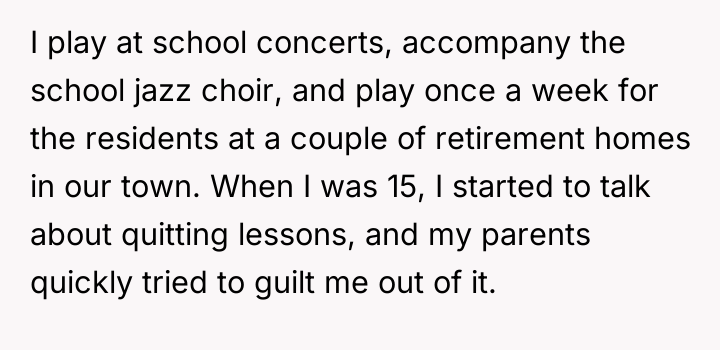
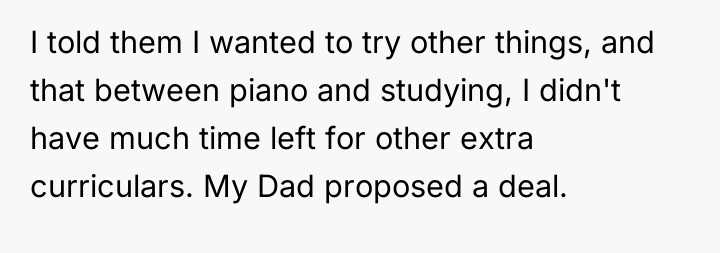
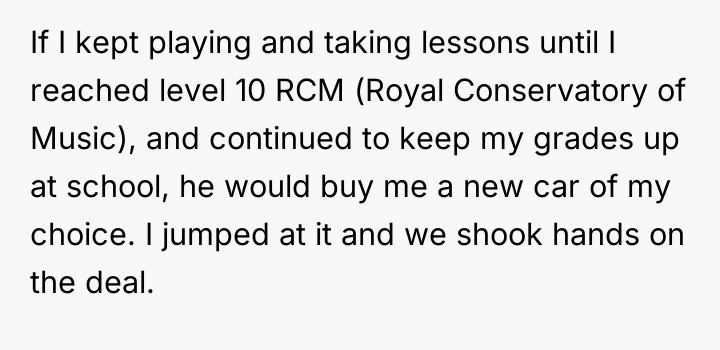

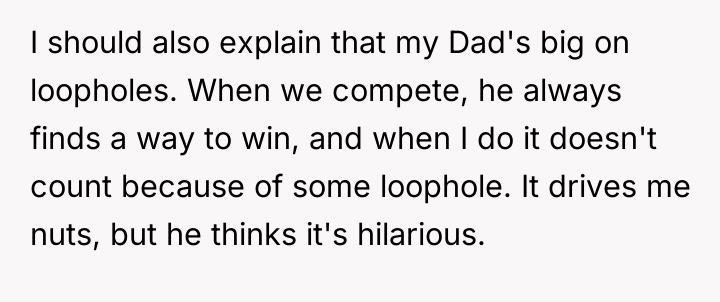
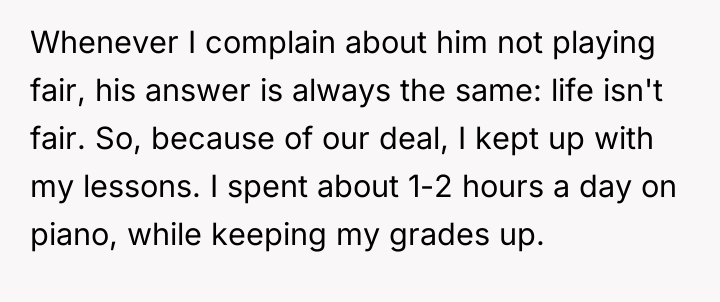

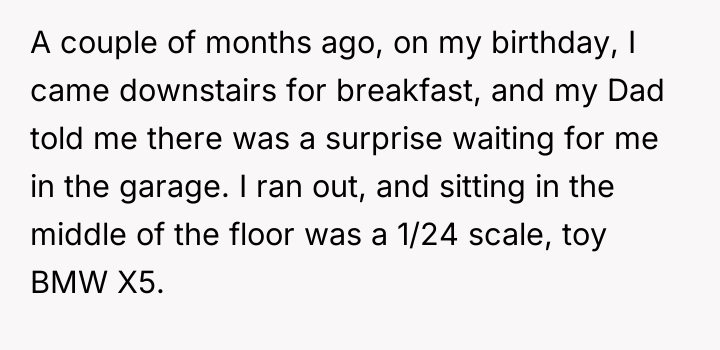

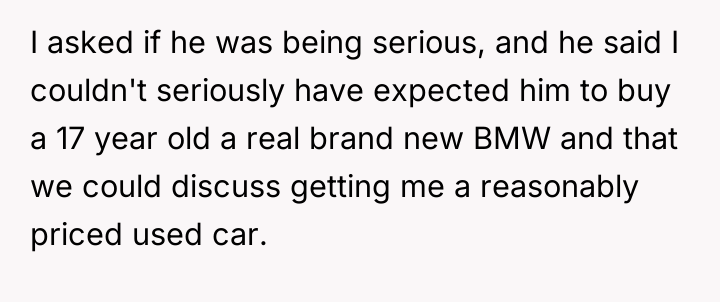
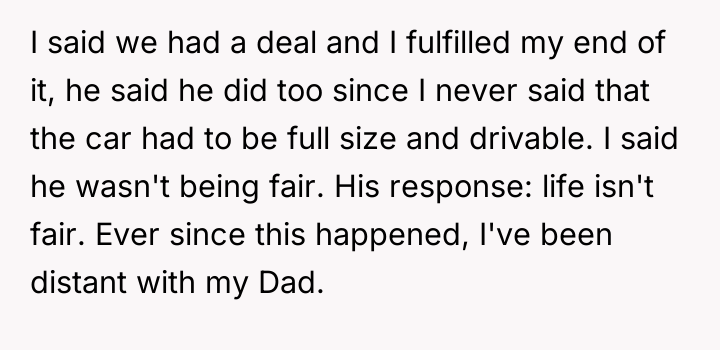
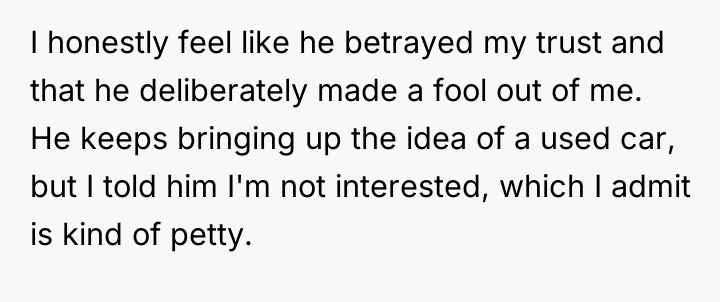
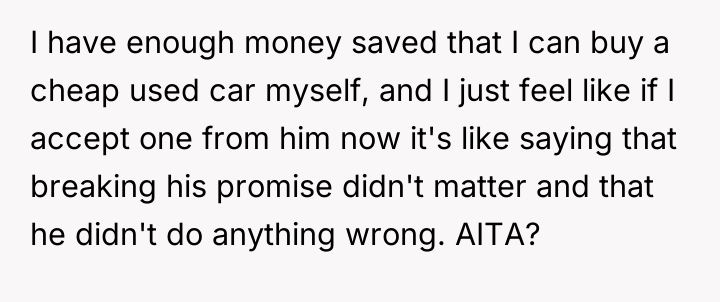
Subscribe to Our Newsletter
As renowned researcher Dr. Brené Brown explains, “Boundaries are the distance at which I can love you and me simultaneously.” This situation highlights a significant failure in establishing and respecting relational boundaries, particularly given the father's established pattern of behavior.
The father’s action was a calculated breach of trust, utilizing linguistic ambiguity (the 'loophole') to avoid the true intent of the agreement. This behavior is often rooted in a need for control or deriving amusement from dominating interactions, as evidenced by his enjoyment of the resulting distress and his recurring justification, 'life isn't fair.' For the 17-year-old user, this betrayal moves beyond a simple broken promise; it invalidates years of diligent effort made under the premise of an honest contract. The user’s emotional labor in maintaining the piano commitment, while balancing academics and community service, was exploited.
The user's current stance—refusing the used car offer—is an understandable, albeit emotionally charged, attempt to enforce a boundary and seek accountability for the father's misconduct. However, accepting a substitute vehicle now would be interpreted by the father as forgiveness without consequence. The constructive path forward involves the user clearly articulating that the value lost was the trust and respect, not just the car. They should state they will buy their own vehicle, perhaps using the promised car's monetary value as a separate fund, but only after the father genuinely acknowledges the maliciousness of his deception, rather than just the technicality of the agreement.
HERE’S HOW REDDIT BLEW UP AFTER HEARING THIS – PEOPLE COULDN’T BELIEVE IT.:
What started as a simple post quickly turned into a wildfire of opinions, with users chiming in from all sides.
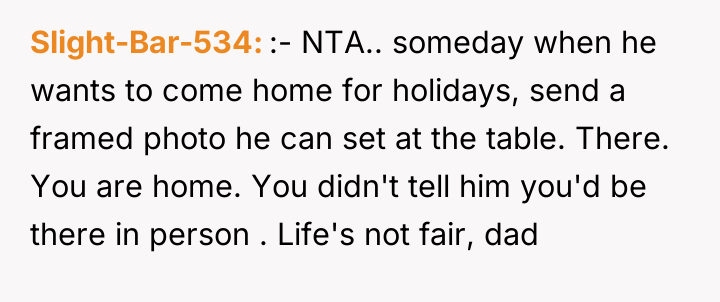
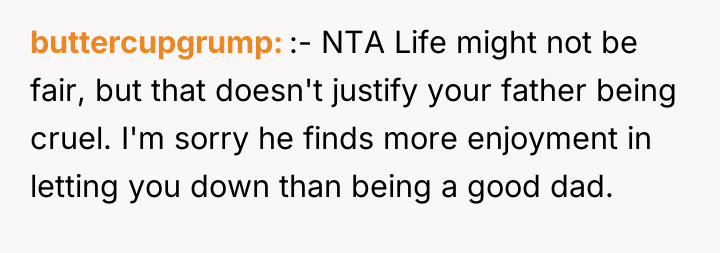
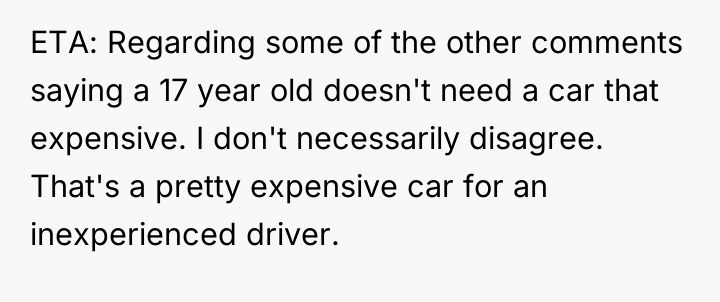
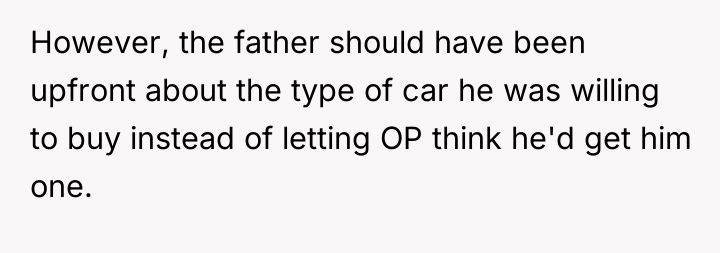
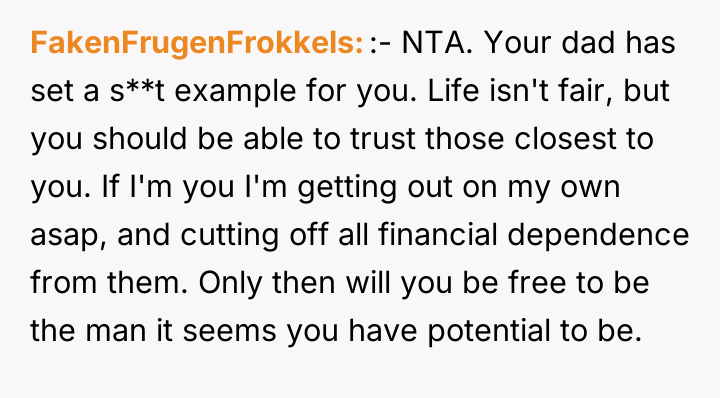
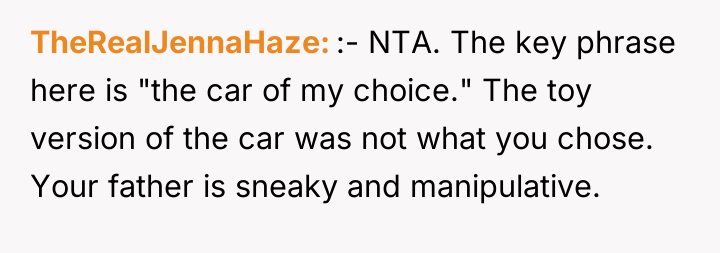
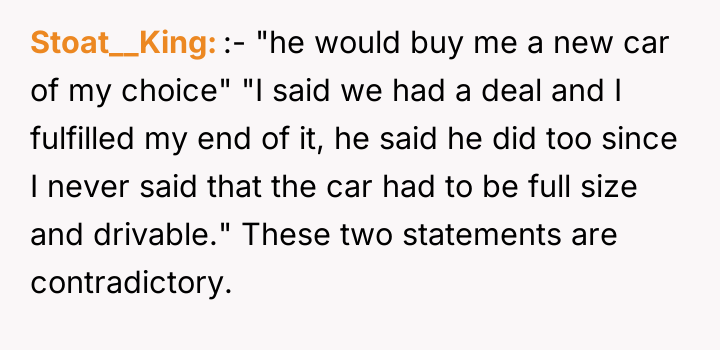

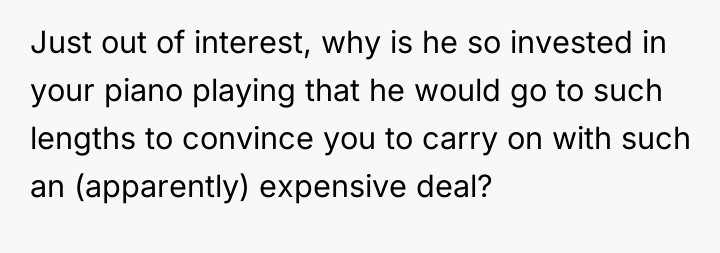
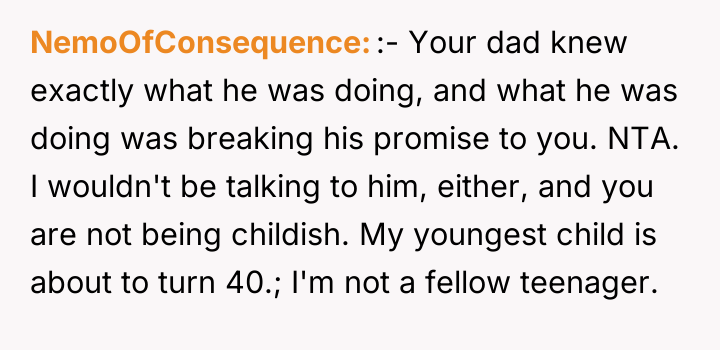
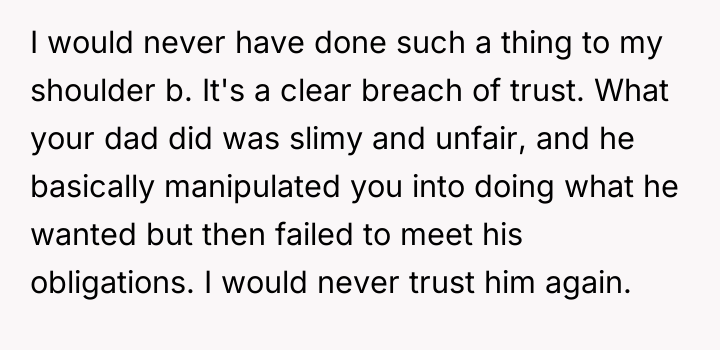
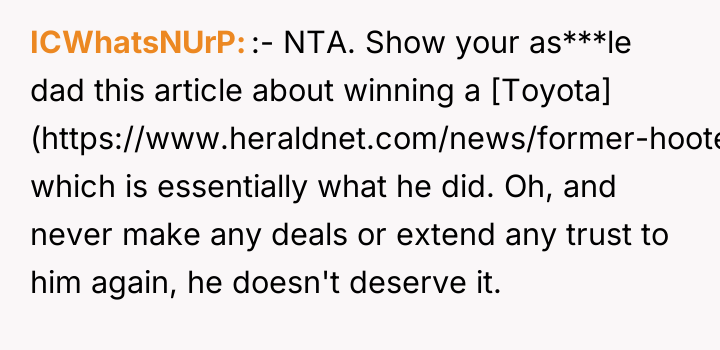
The user feels deeply betrayed and foolish because their father exploited a handshake agreement regarding piano playing commitment and a promised car reward. The central conflict lies between the user fulfilling their demanding obligations (reaching Level 10 RCM) and the father knowingly breaking the spirit of the agreement through a literal, malicious loophole, thereby damaging the trust foundational to their relationship.
Given the father's history of exploiting loopholes and his dismissive attitude about fairness, is the user justified in refusing any subsequent offer of a used car from his father, or should they accept a lesser recompense to move past the conflict?